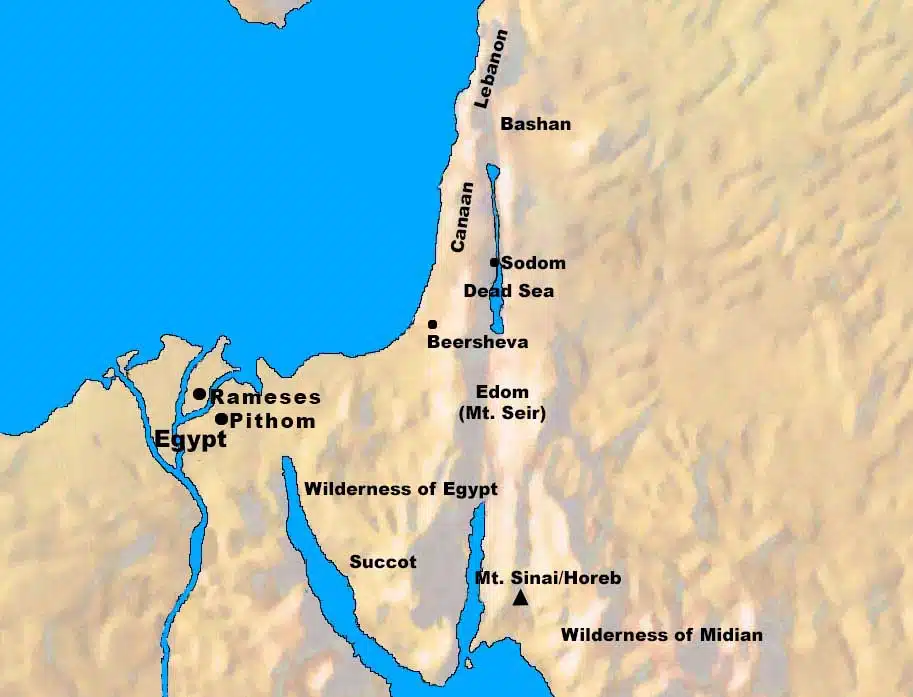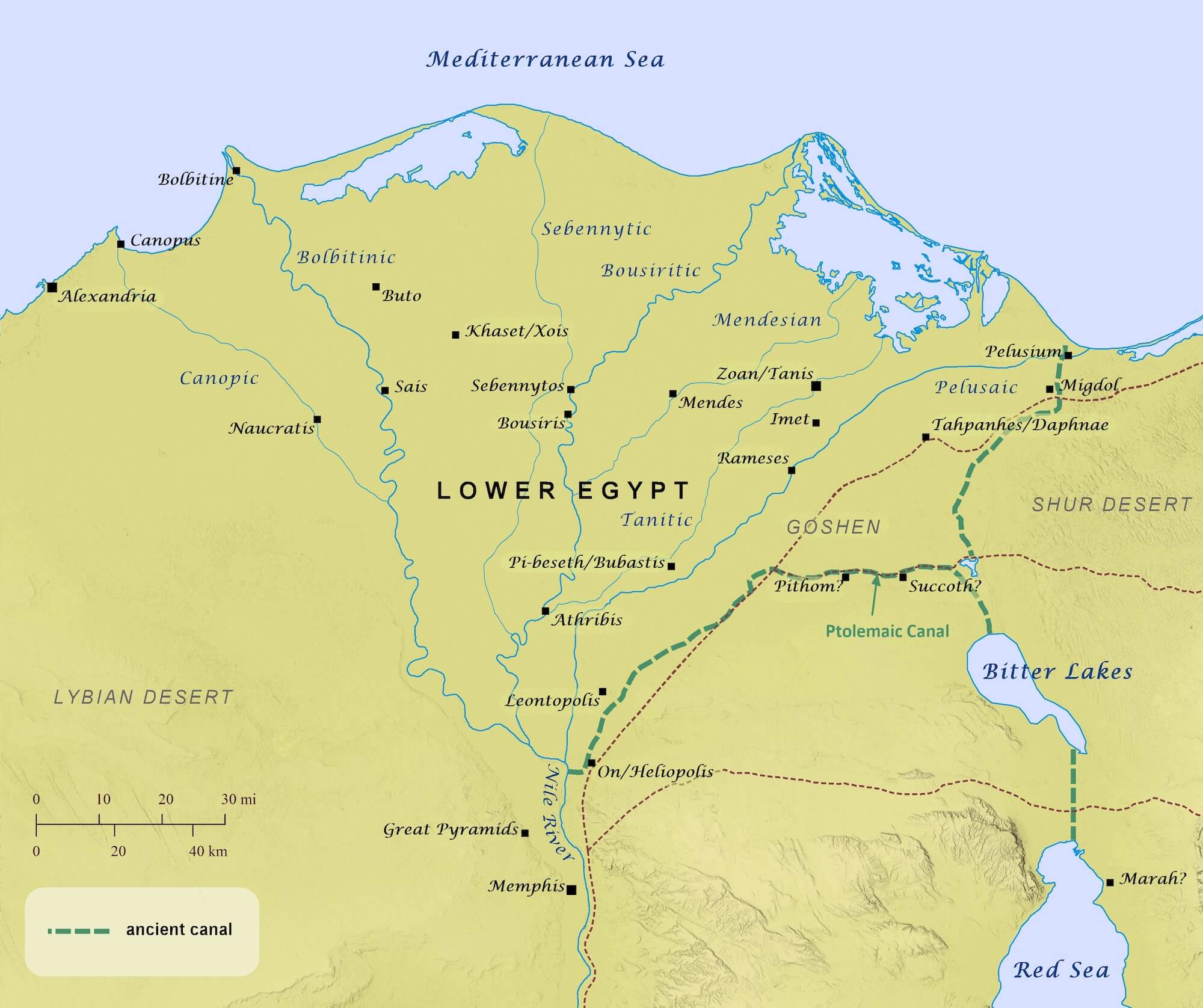The sixth plague (verses 8 – 12) is the last one in the second cycle of the nine plagues. It comes without warning, like the third plague. It involved inflicting painful boils on humans and livestock. Even the magicians were afflicted by the boils and were unable to control the plague. But the result was as the LORD had predicted – Pharaoh’s heart was hardened by the LORD and he did not let the Israelites go out of the land to worship the LORD God.
After an undisclosed amount of time, the Lord said to Moses and Aaron the instructions for the sixth plague. They were told simply to get handfuls of soot from a kiln. The Hebrew word for “soot” is used only here and in verse 10 in the Old Testament. The “kiln” referred to here is one used for making pottery or bricks, making it a symbol of Israel’s oppression (Exodus 1:14, 5:7-19). The source of suffering for the Israelites was about to become the source of suffering for the Egyptians.
After getting the two handfuls of soot each (the word “handfuls” is in the dual form, indicating that Moses and Aaron were to fill both hands with soot), Moses was to throw it toward the sky in the sight of Pharaoh. This was probably a symbolic act for Pharaoh to witness that this plague came from heaven and was not the work of Moses or Aaron.
The result of Moses’ and Aaron’s actions was in verse 9. Here, the LORD says that it will become fine dust over all the land of Egypt. The word “dust” indicates a fine powder. That this dust would exist “through all the land of Egypt” shows the miraculous work of the LORD, because only He can cause four handfuls of soot to become dust over the entire land of Egypt.
The LORD then said that the dust will become boils breaking out with sores on man and beast through all the land of Egypt. The Hebrew word for “boils” can also be translated “inflamed spot.” It is used to describe Job’s disease (2:7-8) and Hezekiah’s illness (Isaiah 38:21). The LORD even threatens Israel with boils if they disobey Him (Deuteronomy 28:27, 35). Causing dust to become boils on humans and animals was another example of the LORD’s sovereignty over nature.
In verse 10, Moses and Aaron obeyed the LORD’s instructions. It says that they took soot from a kiln, and stood before Pharaoh; and Moses threw it toward the sky, and it became boils breaking out with sores on man and beast. The LORD was again true to His word and made the plague happen as he described it.
Verse 11 shows that the plague was so comprehensive that even the magicians, who were probably hard at work to counteract the plague as they had done before, could not stand before Moses because of the boils, for the boils were on the magicians as well as on all the Egyptians. The gods and goddesses they relied upon failed them. That they could not “stand” before Moses was probably a result of physical pain as well as humiliation. The plague affected all the people in Egypt, from the “man on the street” to the princes, magicians, and elites.
Verse 12 tells of the plague’s effects upon Pharaoh. He remained unresponsive because the hardness of his heart. This is the first time that the Lord hardened Pharaoh’s heart. In previous plagues, Pharaoh hardened his own heart. It seems that if a person hardens their own heart for a while, God will harden it even more for the purpose of judgment. A similar concept can be seen in Romans 1.
Either way, the result is the same as the other plagues – Pharaoh did not listen to them, just as the Lord had spoken to Moses. In spite of the misery upon him and his people, the realization that the magicians had no power over the God of the Hebrews, and that he had no power to prevent it, Pharaoh refused to obey the LORD.
This plague showed Pharaoh, the Egyptians, and the Israelites that the LORD is sovereign over sickness and health. It probably was meant to also show the complete inadequacy of Sekhmet, a goddess with a lion’s head and thought to have power over disease. Other deities exposed as impotent here were Sunu, the god of pestilence, and Isis, the goddess of healing. Another god was Imhotep, the god of medicine who also was the guardian of the healing sciences. None could even come close to preventing or lessening what the LORD had purposed.
Biblical Text
8 Then the Lord said to Moses and Aaron, “Take for yourselves handfuls of soot from a kiln, and let Moses throw it toward the sky in the sight of Pharaoh. 9 It will become fine dust over all the land of Egypt, and will become boils breaking out with sores on man and beast through all the land of Egypt.” 10 So they took soot from a kiln, and stood before Pharaoh; and Moses threw it toward the sky, and it became boils breaking out with sores on man and beast. 11 The magicians could not stand before Moses because of the boils, for the boils were on the magicians as well as on all the Egyptians. 12 And the Lord hardened Pharaoh’s heart, and he did not listen to them, just as the Lord had spoken to Moses.
Check out our other commentaries:
-
Romans 10:1-4 meaning
Paul reaffirms that he cares about the Israelites’ salvation. And while there is no doubt the Jews are eagerly devoted to God, they do it...... -
Zechariah 1:1 meaning
The prophet Zechariah receives the word of the LORD in the eighth month of the second year of King Darius of Persia....... -
Numbers 7:18-23 meaning
On the second day, the tribe of Issachar brought offerings to the tabernacle. Their offerings were the same as all the other tribes....... -
Numbers 8:23-26 meaning
In verses 23 – 26, the LORD added another requirement concerning the service of the Levites. They were to serve in the tabernacle from age...... -
Psalm 19:12-14 meaning
We are incapable of fully understanding how flawed and fallen we are. But we can ask God for forgiveness for the mistakes we do not......




